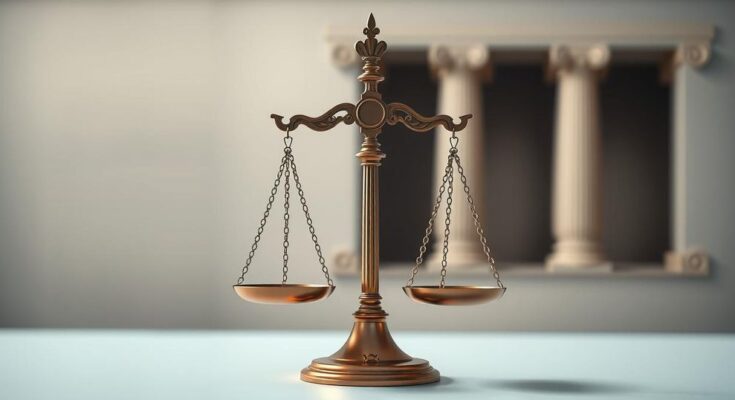The United Nations has released a report implicating the Nicaraguan army in crimes against humanity during the 2018 protests against the Ortega regime. This evidence contradicts the army’s previous denials of involvement in the repression, revealing a high-level orchestration of violence that resulted in significant fatalities. The army’s close cooperation with police and pro-government militias is detailed, highlighting systematic abuses and intelligence operations aimed at deterring dissent.
The United Nations Group of Human Rights Experts on Nicaragua (GHREN) has exposed the Nicaraguan army’s role in the violent repression of social protests against the Ortega and Murillo regime in 2018. Their report identifies credible evidence implicating military leadership in crimes against humanity, contradicting previous claims that the army was uninvolved. It asserts that both the President Daniel Ortega and Vice President Rosario Murillo directed the brutal crackdown, resulting in over 350 deaths.
The report details a meeting of military officials shortly after protests began, where they discussed a supposed coup d’état orchestrated by social organizations. It documents systematic violence, indicating that military orders led to the excessive use of force against demonstrators. This oversight, described as the worst violence in Nicaragua since the post-war period, was characterized by orders to “go in with everything.”
Additional findings indicate that the army operated alongside pro-government forces to suppress dissent. The report describes their involvement in intelligence operations, training civilians, and executing extrajudicial killings, aimed not merely at control but at instilling terror among the public. The involvement of the military underscores the regime’s strategy of using lethal weapons and snipers during the protests.
Despite denying participation, the army has increasingly aligned itself with the Ortega and Murillo government, highlighted by General Julio César Avilés’ recent reappointment for a fourth successive term as army chief. The report stresses how this collaboration extends beyond military actions, encompassing various security and intelligence operations to monitor and suppress opposition, using extensive state resources.
The GHREN experts conclude that a comprehensive surveillance structure, involving multiple state agencies, operates to identify and neutralize dissent. This coordination utilizes intelligence systems to harass, detain, or otherwise suppress potential opponents across Nicaraguan society. Thereby, the Nicaraguan army’s growing involvement in repression and its integration into the regime’s broader control mechanisms have profound implications for human rights in the country.
In conclusion, the UN report sheds significant light on the Nicaraguan army’s direct involvement in the violent repression of protests against the Ortega and Murillo regime. It provides credible evidence linking military leaders to systemic abuses and highlights the dangerous collaboration between the military, police, and pro-government groups. The findings necessitate a reevaluation of the accountability mechanisms for human rights violations within Nicaragua, emphasizing the urgent need for international scrutiny and action.
Original Source: english.elpais.com




